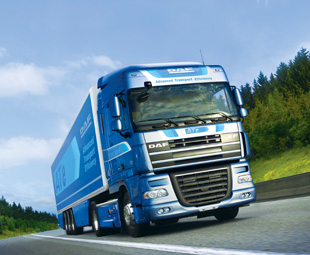No more warranty woes

Concerned about the ever-increasing cost of servicing and maintaining your vehicles? Make sure they have warranties – reliable ones that can give you real peace of mind, and eliminate those unexpected breakdowns. CLAIRE RENCKEN speaks to service providers in this field to see what’s on offer.
Some say that, for too long now, the notion of replacing something, rather than repairing it, has dominated market sentiment. “However, we are slowly noticing a shift in this thinking, where external, economic factors impact the way businesses choose and manage their capital goods,” says Wade Griffin, director of commercial vehicles at Hyundai Automotive South Africa.
“Businesses are now focused on deriving more value from their vehicle fleets and are looking for extensive options in this regard. Therefore, when choosing an expensive item like a fleet vehicle, it is understandable that an organisation, that wants to prolong a vehicle’s use for as long as it can, examines a warranty carefully,” he adds.
Ensuring a good warranty is in place is one of the most important things to take into account when purchasing new vehicles. Griffen explains: “Business owners and fleet managers must identify what the warranty covers, and, importantly, understand what it does not include. For example: Hyundai Automotive South Africa offers a three-year/ 200 000 km standard warranty and roadside assistance. (The industry benchmark for a medium commercial vehicle is 5 000 km per month.)”
Freightliner threw down the gauntlet to its competitors at the beginning of the year with the introduction of an impressive new offering – the best-in-its-class, five-year /800 000 km warranty. Freightliner has long been able to offer customers a flexible working solution to service a wide range of commercial and industrial applications due to its range of extra-heavy-duty options.
With the introduction of the new warranty offering, which comes standard on all Freightliner Argosy vehicles, customers now have even further peace of mind with regard to the reliability of the brand. The warranty includes: a full engine warranty on Detroit Diesel and Cummins for five years or 800 000 km and a warranty on transmissions, steer axles and drive axles for three years or 600 000 km.
Divisional manager, Godfrey Hani, says: “With the introduction of this warranty offering, we are taking yet another giant stride in our mandate to consistently deliver to our customers the most competitive products on the market. This also serves to highlight the confidence that we have in the resilience and durability of the Freightliner brand.”
So, the heat is on now for competitors to offer similar warranties, some of whom are, no doubt, already exploring their options.
Interestingly, when one looks at what’s happening abroad, in terms of commercial-vehicle warranties, South Africa seems to be ahead of the game. Mark Gavin, national sales director at DAF, says: “Generally warranties offered overseas are shorter than our standard offerings. Extended warranties normally come at an additional cost to the operator. As standard features, the South African offerings are superior to those offered in Europe.”
Hannes Oosthuizen, brand manager at GWM, agrees: “In general, South African consumers get long warranties. A long warranty is seen as a statement of self-belief by the manufacturer concerned. On the other hand, more established brands can get away with offering shorter warranties.”
Oosthuizen says GWM has just introduced a ten-year corrosion warranty on all its products, including single-cab commercial vehicles, in addition to the three-year/100 000 km single-cab warranty.
Currently, DAF offers a three-year/ 600 000 km warranty on the complete driveline as a standard feature with every vehicle. Extended or alternate warranties are available at an additional cost. Gavin points out that, when purchasing trucks, customers definitely look at inclusions and exclusions on warranties. “A lot of warranties are limited value-wise on certain components, do not cover all components, or have a lot of ‘small print’. Customers are looking for solid, comprehensive warranties that back up the product and allow them a great deal of comfort.”
Griffin echoes this sentiment: “When considering a vehicle warranty, it is important to evaluate its inclusions and exclusions – whether it is a full manufacturer’s warranty or simply an extension that is backed-up locally. Full manufacturer’s warranties tend to be more valuable as the cover is more comprehensive, which means part failures are accounted for, thereby reducing maintenance costs.”
In fact, businesses need to check whether the warranties provide built-on value that reduces warranty claims. As an example: many commercial vehicles have turbo-charged engines which are prone to frequent maintenance. “In this regard, Hyundai offers a standard turbo-protector to ensure there are no turbo failures. Through this, the fleet vehicle may never need maintenance; depending on driver behaviour of course. Built-on value also decreases the need for warranty claims in certain instances, which Hyundai stands testament to,” adds Griffin.
The manufacturer’s warranty should cover a number of vehicle components, including: the vehicle’s engine, transmission and gearbox, drivelines and final drives, drive couplings, steering, front and rear suspension, brakes, exhaust, electrical system and the air-conditioning system.
“The full extent of this warranty is explained in detail in the service book provided with every new vehicle purchased, but should always be discussed, before a vehicle purchase, with the relevant fleet vehicle supplier,” he says.
The right vehicle warranty can contribute to reducing the overall cost of ownership, for any business and fleet owner, and is a welcome relief for companies faced with ever-increasing costs.
Published by
Focus on Transport
focusmagsa




